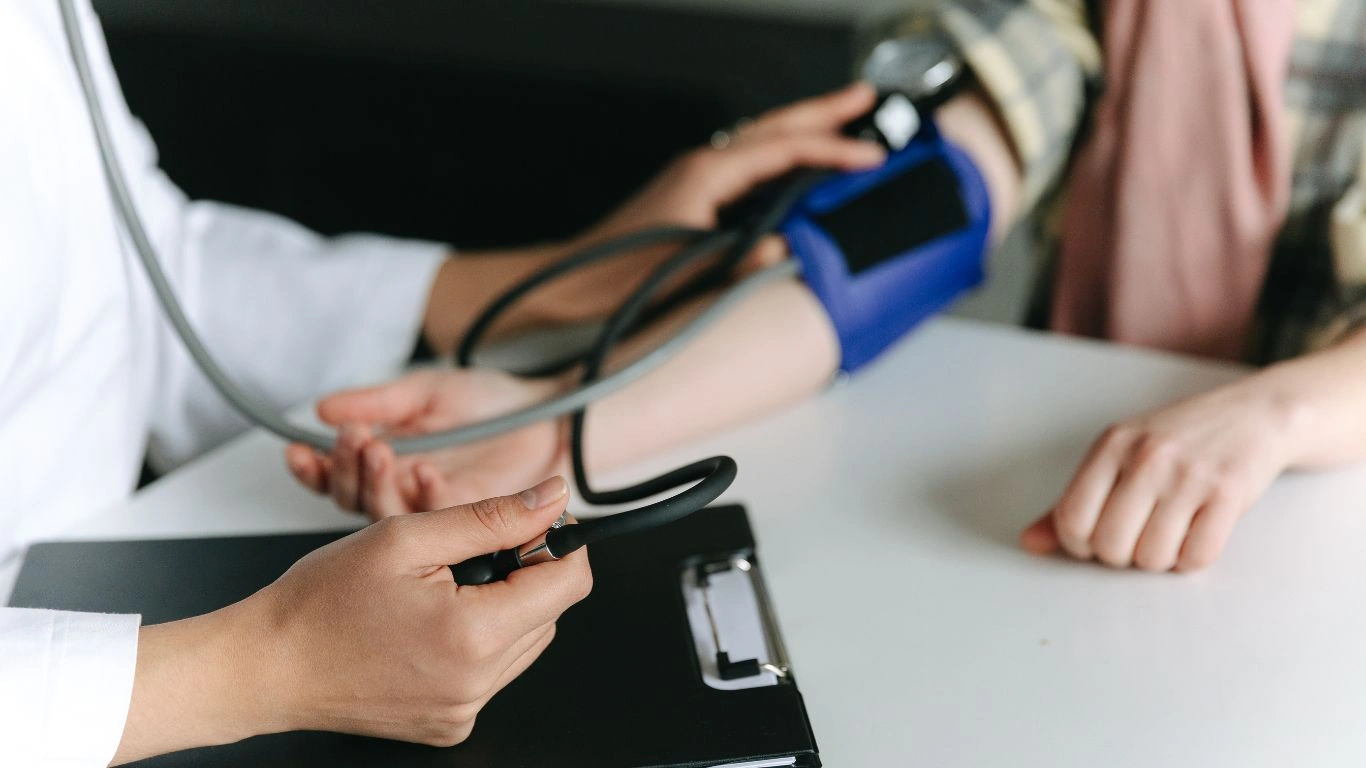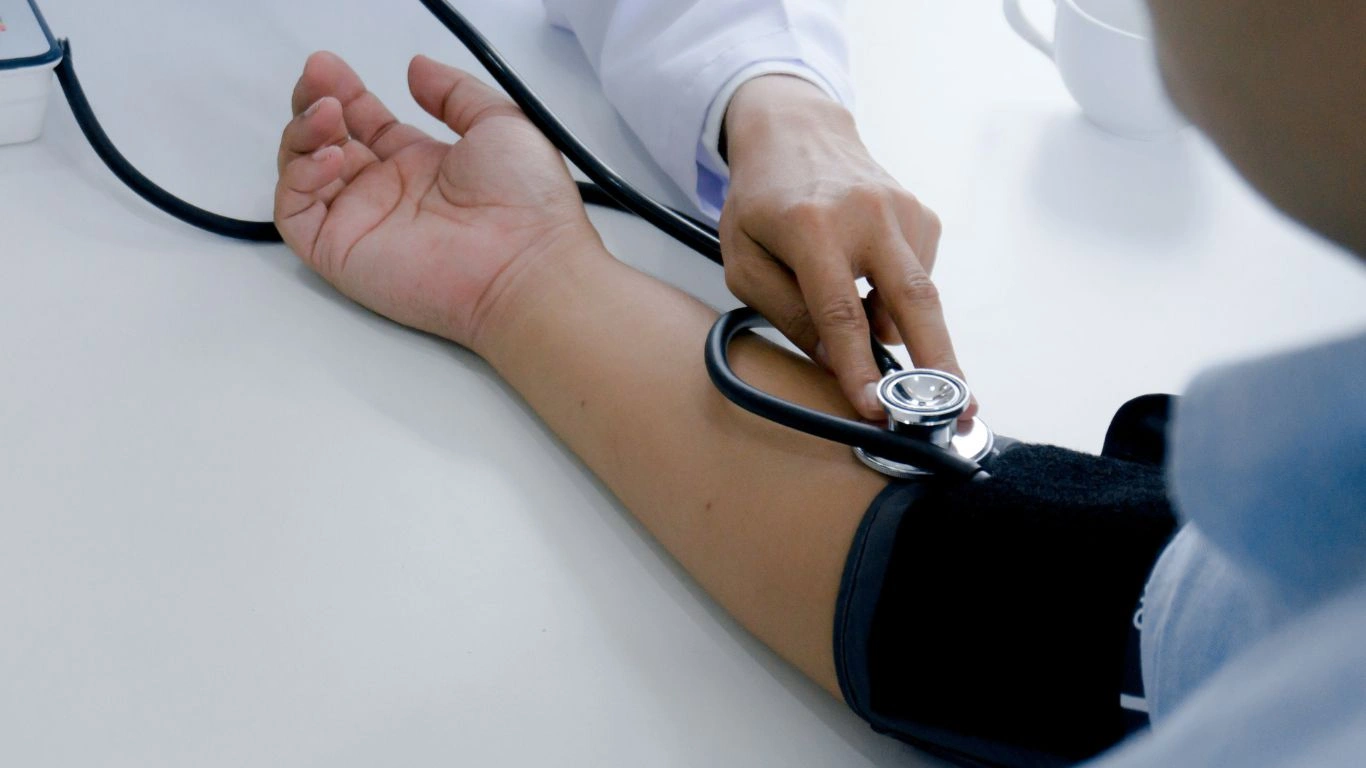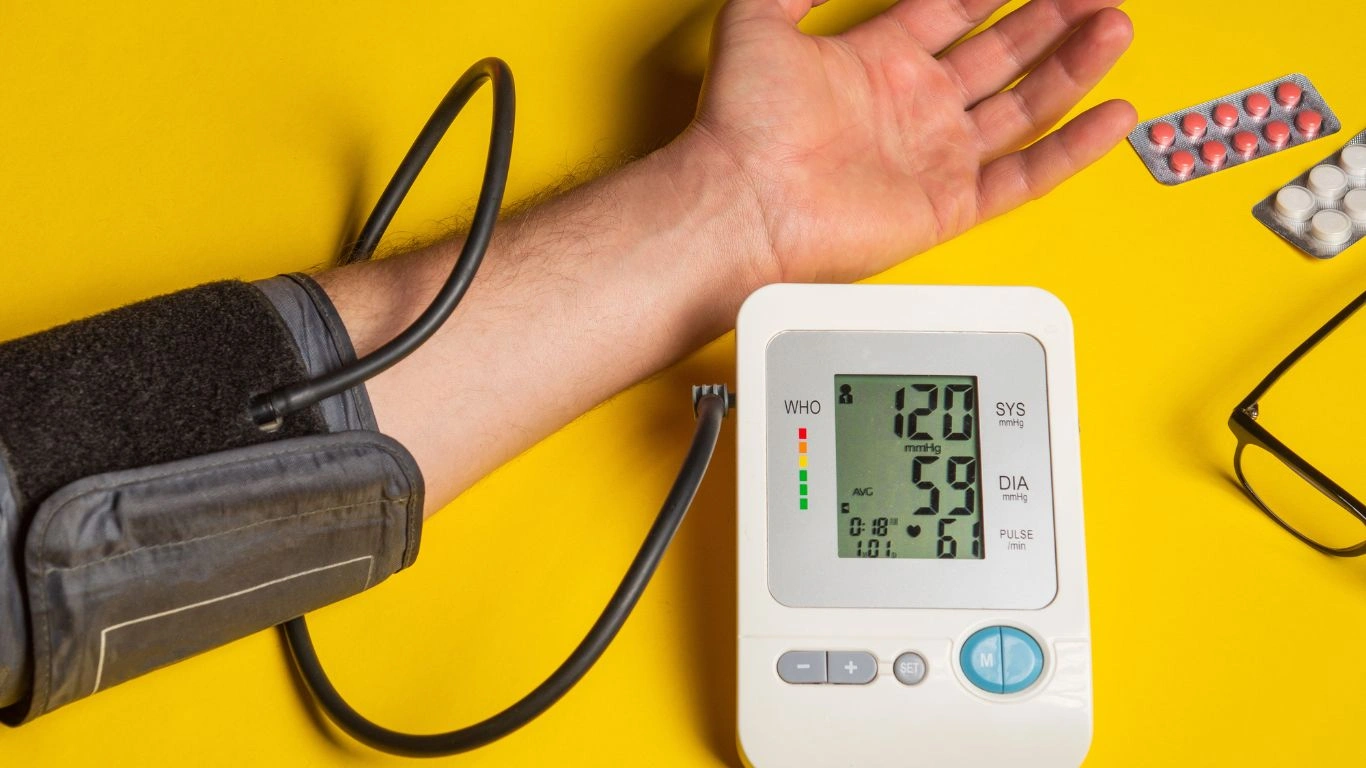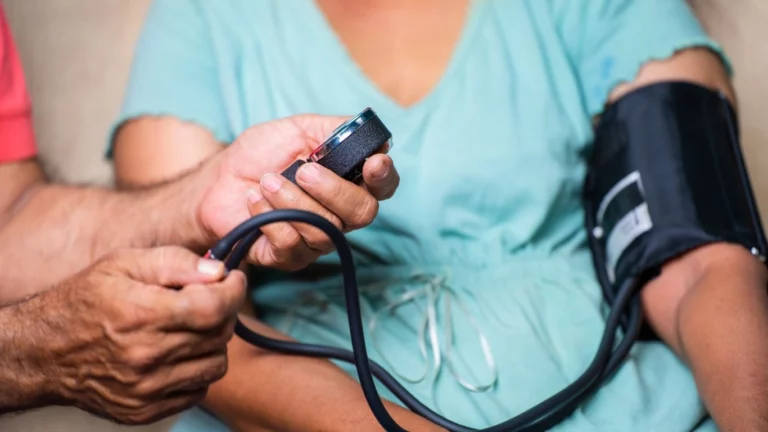How Chewing Food Properly Can Naturally Benefit Your Blood Pressure
When it comes to managing blood pressure, we often focus on the big players—medication, diet, exercise, and stress management. But have you ever thought about something as simple as how you chew your food? It may sound surprising, but the act of chewing properly can actually have a profound impact on your blood pressure. I know, it seems like a small detail, but trust me—it’s one of those “little things” that makes a big difference in overall health. In this post, we’re going to explore how chewing food properly benefits blood pressure, and why this overlooked habit could help you maintain better cardiovascular health.
Why Chewing Food Matters More Than You Think

Most people don’t realize it, but the process of chewing is crucial for digestion and overall health. Think of your mouth as the first step in a long digestive journey, and proper chewing is essential for breaking down food into smaller pieces that your body can digest more easily. But the benefits of chewing go beyond just helping your stomach do its job. Research has shown that how well you chew your food can directly influence things like nutrient absorption, metabolic rate, and even blood pressure regulation.
From my own experience working with patients, I’ve seen a common thread: most of us tend to rush through meals without giving much thought to how we’re eating. Whether it’s a busy workday, a family dinner, or just a quick snack on the go, the tendency to gobble down food without proper chewing is widespread. But here’s the thing—chewing your food properly can actually help your body manage blood pressure more effectively. Let’s dive into the science behind it.
Chewing and Its Effect on Blood Pressure
The link between chewing and blood pressure might seem like a stretch, but there’s solid evidence that shows how this simple act can make a difference. When you chew your food thoroughly, your body has more time to process it, which leads to better digestion and absorption of nutrients. This not only helps with metabolism but can also influence how your body manages certain hormones that regulate blood pressure.
When we eat too quickly and don’t chew enough, our digestive system can get overloaded. This can lead to bloating, indigestion, and an increase in stress hormones like cortisol, which, as we know, can raise blood pressure. By slowing down and chewing food properly, we allow our body to break down food more efficiently, and we also help regulate stress hormones in a more balanced way. It’s a small change, but it can have a significant impact on your health in the long run.
How Proper Chewing Can Help with Stress Reduction

One of the most overlooked causes of high blood pressure is chronic stress. When you’re stressed, your body releases hormones like cortisol and adrenaline that can spike your blood pressure. Interestingly, taking the time to chew food properly can actually help you manage stress in a couple of ways. First, the act of chewing itself can be a calming, mindful activity that slows down your body’s stress response. It’s kind of like meditation but with food.
Let’s think about it: when you focus on chewing your food slowly, you’re being present in the moment. This simple mindfulness technique can help activate the parasympathetic nervous system, which is responsible for “rest and digest” functions. As a result, your body enters a more relaxed state, reducing the overall stress load on your system. Over time, this can contribute to lower blood pressure.
Chewing: A Natural Way to Control Blood Sugar
Proper chewing also plays a significant role in controlling blood sugar levels, which is another key factor in managing blood pressure. When food is broken down more thoroughly in the mouth, the digestive process is more efficient, leading to better regulation of glucose. A more gradual release of sugar into the bloodstream means fewer spikes in insulin, which in turn helps maintain steady blood pressure.
If you’ve ever experienced the “food coma” feeling after eating a large meal, you’ve probably noticed how quickly your blood sugar levels can fluctuate. This spike and subsequent crash can stress your body, triggering an increase in blood pressure. By chewing properly, you slow down this process, helping to avoid those sudden swings in blood sugar that contribute to high blood pressure over time.
How to Start Chewing Properly

Now that you understand the science behind how chewing food properly can benefit blood pressure, the next step is incorporating this practice into your daily life. It’s simpler than it sounds! Here are a few tips that have helped me and my patients:
- Slow Down: Aim to chew each bite at least 20-30 times. It sounds like a lot, but once you get into the rhythm, it becomes second nature.
- Put Down Your Fork: Between bites, put your fork or spoon down to prevent you from rushing through your meal.
- Focus on Your Meal: Avoid distractions like your phone, TV, or computer while eating. Being present helps you slow down and enjoy the experience.
- Take Smaller Bites: Smaller portions are easier to chew thoroughly and can help with digestion.
Remember, it’s all about making small adjustments over time. Chewing your food properly is a simple habit that can have long-lasting benefits for your health. If you start implementing these changes today, you could see improvements in your blood pressure, stress levels, and overall well-being.
In the next section, we’ll dive deeper into the connection between digestion and heart health. Stay tuned!
The Impact of Chewing on Digestion and Nutrient Absorption

Let’s take a deeper look at the role digestion plays in regulating blood pressure. When you chew your food thoroughly, you’re setting the stage for better digestion. Digestion doesn’t just happen in the stomach—it begins the moment food enters your mouth. The process starts with saliva, which contains enzymes that begin breaking down starches. This is why chewing is so important: it allows the enzymes to do their job properly and ensures that the food you consume is broken down into smaller, easier-to-digest pieces.
By chewing properly, your body is able to absorb nutrients more efficiently. This includes important vitamins and minerals like potassium, magnesium, and calcium, which are crucial for blood pressure regulation. A deficiency in any of these nutrients can lead to elevated blood pressure levels. So, the more you chew, the better your body can access these essential nutrients. Over time, this can help maintain a healthy cardiovascular system and keep your blood pressure within a normal range.
The Role of Saliva in Blood Pressure Management
Something you may not have thought about is how your saliva contributes to regulating blood pressure. Yes, saliva! It contains a compound called nitric oxide, which has been shown to help dilate blood vessels. When you chew your food properly, you stimulate saliva production, which in turn supports the release of nitric oxide. This is significant because nitric oxide plays a vital role in relaxing and widening blood vessels, which helps to lower blood pressure.
Over the years, I’ve worked with many patients who were surprised to learn about this connection between chewing and blood pressure. It’s such a small, natural action, but it has a big impact. This is one of the reasons I always encourage my patients to slow down and really focus on their meals. It’s not just about enjoying the taste of the food—it’s about giving your body the best chance to absorb those essential nutrients and maintain balanced blood pressure levels.
Chewing and Weight Management: The Link to Healthy Blood Pressure

Another crucial aspect of blood pressure is weight management. Excess body weight is a well-known risk factor for hypertension, and it’s something that can be managed with mindful eating habits. One of the simplest yet most effective ways to control your weight is by chewing your food properly. You might be wondering how that works—well, it comes down to satiety. The more thoroughly you chew your food, the more likely you are to feel full and satisfied with smaller portions.
From personal experience, I can tell you that many of us have a tendency to overeat when we eat too quickly. We might not give our body enough time to register fullness, leading to overeating and, eventually, weight gain. But when you chew slowly and thoroughly, you give your body the time it needs to signal that it’s full. This naturally leads to smaller portion sizes, helping with weight control and, by extension, blood pressure management.
The Connection Between Overeating and Hypertension
Overeating isn’t just a matter of consuming too many calories—it can also lead to higher levels of fat in the body, particularly around the abdominal area. This excess fat can contribute to insulin resistance and inflammation, both of which are strongly linked to high blood pressure. By chewing your food more slowly, you not only reduce your calorie intake, but you also help prevent the inflammatory processes that can lead to hypertension.
One of my patients, a middle-aged woman with a family history of hypertension, told me how she managed to lose 10 pounds over the course of a few months simply by being more mindful of how she chewed her food. She wasn’t on any special diet or exercise regimen—she just started focusing on chewing every bite thoroughly. It was an effortless change that not only helped her feel more in control of her food intake but also made a noticeable difference in her blood pressure readings. Stories like hers are a testament to the power of mindful eating.
The Psychological Benefits of Chewing: A Calming Effect on Your Mind

We can’t talk about chewing without mentioning the mental benefits it brings. As I’ve already discussed, proper chewing can trigger the parasympathetic nervous system, which is responsible for helping us relax. But did you know that chewing also activates certain regions in the brain that are responsible for managing anxiety and stress? It’s true! This is why taking the time to chew slowly and carefully can have a calming effect on both your body and mind.
From a psychological standpoint, the act of eating becomes a moment of mindfulness. You’re focused on the task at hand, and this allows you to disconnect from the stresses of your day. I always encourage my patients to take a few minutes to eat without distractions—no scrolling through their phones, no working through lunch, and no rushing through meals. This practice of mindful eating not only helps you chew your food better, but it also gives you a mental break that’s so important for reducing stress levels.
How Chewing Can Help Prevent Emotional Eating
Another benefit of mindful chewing is that it can help reduce emotional eating. Many of us turn to food when we’re stressed or feeling overwhelmed. However, if we slow down and really pay attention to the act of eating, we’re less likely to eat out of boredom or stress. By chewing slowly and savoring each bite, you give yourself the chance to feel more satisfied with less food, which can help break the cycle of emotional eating.
Over the years, I’ve seen how simple habits like this can make a real difference in people’s lives. It’s amazing how something as basic as chewing properly can impact your physical and mental health in such positive ways. The good news is that anyone can start practicing mindful eating today—it’s a small change that can lead to big rewards, especially when it comes to managing blood pressure and stress levels.
In the next section, we’ll explore more ways to improve your overall blood pressure health through lifestyle changes and natural remedies. Stay tuned for more tips and insights!
Other Lifestyle Changes for Better Blood Pressure Control

While chewing food properly can make a significant impact on blood pressure, it’s not the only lifestyle change that can help you stay healthy. Over the years, I’ve worked with patients to help them implement a range of simple, effective changes in their daily lives to improve their blood pressure and overall heart health. Many of these changes complement the benefits of mindful eating, creating a holistic approach to hypertension management. So, let’s take a look at some additional lifestyle tweaks that can help you keep your blood pressure under control.
Diet and Nutrition: A Key Pillar of Blood Pressure Health
It’s no surprise that what you eat plays a massive role in your blood pressure. As a hypertension expert, I often recommend a balanced diet rich in whole foods, low in sodium, and packed with essential nutrients like potassium, magnesium, and fiber. If you haven’t already, consider incorporating more fruits, vegetables, whole grains, and lean proteins into your meals. These foods help to regulate blood pressure by reducing inflammation, improving blood vessel function, and supporting overall cardiovascular health.
Additionally, paying attention to your sodium intake is crucial. High levels of sodium can contribute to fluid retention and make your heart work harder, which raises your blood pressure. If you’re eating a lot of processed foods, take a look at the sodium content on food labels. You may be surprised at how much salt is hidden in some seemingly harmless foods.
Here’s an important tip from my personal experience: it’s not just about what you eat, but how much. Portion control is essential, and it ties back to the importance of chewing your food properly. The more thoroughly you chew, the more satisfied you’ll feel with less food. I always encourage my patients to focus on eating whole foods that naturally support blood pressure health while being mindful of portion sizes.
Exercise: Moving Your Body to Lower Blood Pressure

Of course, another major factor in managing blood pressure is regular physical activity. It’s no secret that exercise helps improve circulation, strengthen the heart, and reduce stress—all of which contribute to healthier blood pressure levels. But did you know that the way you exercise can also influence your blood pressure in different ways? Let me share a little insight from my own journey as a health professional.
When I first started advising patients on exercise routines for blood pressure management, many were surprised to learn that even moderate, low-impact exercise could help. Walking, swimming, cycling—these are all great options for lowering blood pressure without putting too much strain on your joints. Just 30 minutes a day can make a significant difference over time. As with everything, consistency is key. If you start slow and gradually build up, you’ll notice the positive changes in both your blood pressure and overall health.
The Importance of Stress Management
Chronic stress is one of the most common culprits of high blood pressure, and unfortunately, it’s something many of us deal with daily. Whether it’s work pressure, family obligations, or financial worries, the stress load we carry can take a toll on our cardiovascular system. The good news is that stress is something you can actively manage with relaxation techniques and a little bit of mindfulness.
Some of the best ways to reduce stress include practices like yoga, meditation, and deep breathing exercises. I always recommend my patients try to find some form of relaxation that works for them, whether that’s taking a walk in nature, journaling, or simply taking a few minutes each day to breathe deeply and focus on the present moment. These small practices can lower the levels of cortisol (the stress hormone) in your body, leading to better blood pressure control.
Sleep and Blood Pressure: The Overlooked Connection
Getting enough sleep is another crucial factor in maintaining healthy blood pressure. Poor sleep has been directly linked to higher blood pressure levels, and over time, this can lead to a range of health problems, including cardiovascular disease. If you’re not getting enough restful sleep, your body doesn’t have the time it needs to repair and rejuvenate, which can have long-term consequences on your heart health.
One of the most common sleep problems I see in patients is sleep apnea, which has a direct impact on blood pressure. Sleep apnea can cause intermittent breathing interruptions during the night, leading to oxygen deprivation and increased strain on the heart. If you think you may be suffering from sleep apnea or if you’re having trouble sleeping, it’s important to discuss it with your doctor. They can help guide you toward the best solutions for your sleep health, which will ultimately benefit your blood pressure as well.
Hydration: Don’t Forget to Drink Water
We all know the importance of staying hydrated, but did you know that proper hydration can also help maintain healthy blood pressure? Dehydration can lead to lower blood volume, which in turn causes your heart to work harder to pump blood. This can result in an increase in blood pressure. Drinking plenty of water ensures that your body maintains proper fluid balance, making it easier for your cardiovascular system to function efficiently.
As a rule of thumb, aim to drink at least eight glasses of water a day, but keep in mind that your needs may vary depending on your activity level and climate. The key is to listen to your body and drink when you’re thirsty. If you’re active, you may need more water to replace the fluids lost through sweat, so be mindful of staying hydrated throughout the day.
References and Further Reading
For anyone interested in learning more about how lifestyle changes can impact blood pressure and heart health, I recommend checking out some reputable resources. Websites like the American Heart Association and Centers for Disease Control and Prevention (CDC) provide valuable, evidence-based information about managing blood pressure through diet, exercise, and stress management.
Disclaimer
The information shared in this article is for educational purposes only and should not be considered as medical advice. Always consult with a healthcare professional before making any changes to your diet, exercise routine, or medication regimen. Blood pressure management is highly individualized, and a healthcare provider can offer tailored guidance to help you achieve optimal results.

Dr. Gwenna Aazee is a board-certified Internal Medicine Physician with a special focus on hypertension management, chronic disease prevention, and patient education. With years of experience in both clinical practice and medical writing, she’s passionate about turning evidence-based medicine into accessible, actionable advice. Through her work at Healthusias.com, Dr. Aazee empowers readers to take charge of their health with confidence and clarity. Off the clock, she enjoys deep dives into nutrition research, long walks with her rescue pup, and simplifying medical jargon one article at a time.






